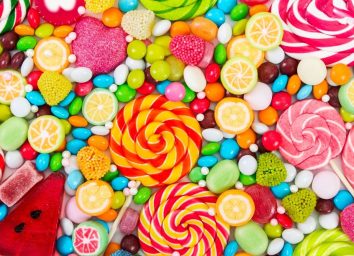4 Surprising Effects of Chewing Gum, Says Dietitian
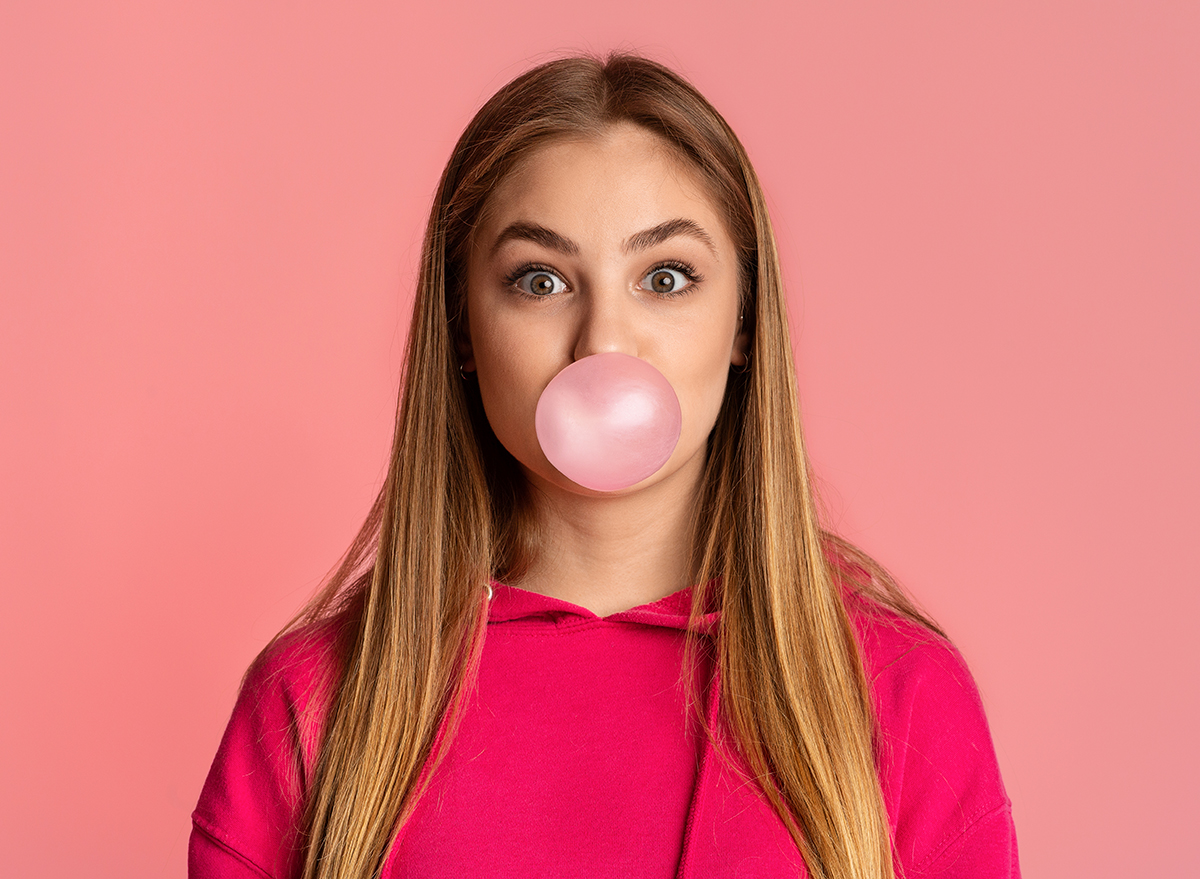
A stick of chewing gum. You don’t think much of it besides the fact that it helps you with your bad breath, or it gives you something to chew on throughout the day. It’s easy to stick in your purse or your car in case you need to have a piece with you.
Well, did you know that chewing gum actually has more benefits than you thought? We spoke with our medical expert board member Lauren Manaker, MS, RDN, LDN, CLEC, CPT, author of The First Time Mom’s Pregnancy Cookbook, The 7 Ingredient Healthy Pregnancy Cookbook, and Fueling Male Fertility, who tells the surprising effects of what chewing gum can do for you. Then be sure to check out Does Chewing Gum Help You Lose Weight?
You may experience fewer cavities.
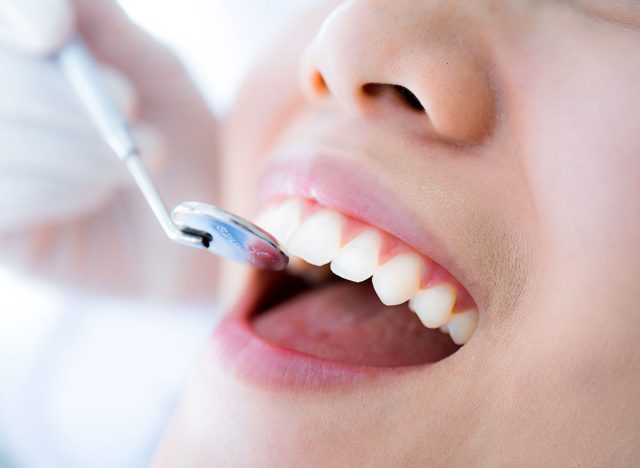
Typically, gum contains lots of sugar in one stick. However, switching to sugarless options can do you some good.
“If you are chewing sugarless gum, there is evidence suggesting that this act can help reduce your cavity risk if you chew after your meals for a specific amount of time,” says Manaker. “Chewing can increase saliva production, which can ‘wash away’ potential culprits and expose teeth to more calcium, possibly resulting in stronger teeth.
You may experience fewer ear infections.
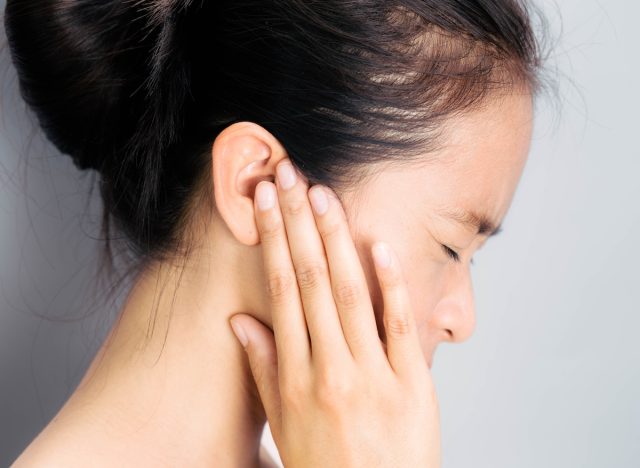
“For children who are prone to developing ear infections, chewing gum with Xylitol may help reduce their risk of experiencing this painful condition,” says Manaker.
Xylitol is a natural sugar alcohol that is typically found in plants, including many fruits and vegetables. Its sweet taste is often used as a sugar substitute, which is why you can find it in sugar-free candies, like gum. Xylitol can act against some bacteria that cause ear infections, as well as reduce levels of decay-causing bacteria in saliva.
You may stimulate your bowel movements.
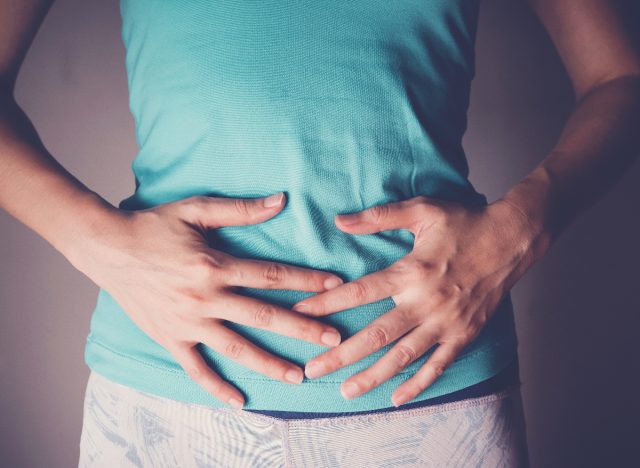
According to Manaker, your bowel movements may become more stable if you chew gum after surgery.
“If you underwent gastrointestinal (GI) surgery or a surgery which involves that area of the body (like a C section), your bowel function might return quicker if you chew sugarless gum multiple times a day post-op,” she says.
You may crave fewer sweets.
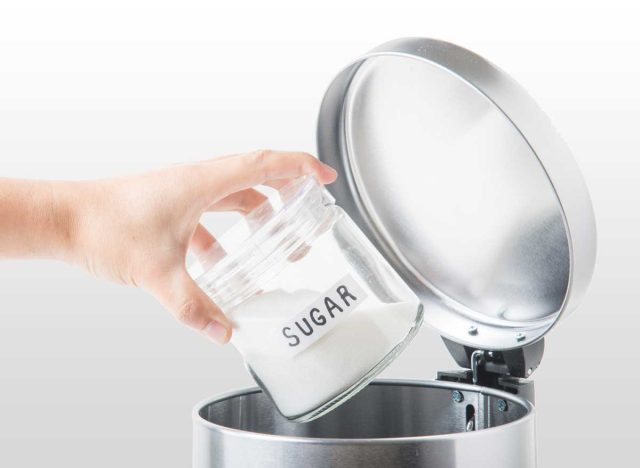
If you’re always looking for something sweet, whether it be after a meal or as a midday snack, gum can be the solution to your sugary cravings.
“Some evidence shows that chewing gum can satisfy a sweet tooth and can help people suppress their appetite, ultimately helping them manage their weight,” says Manaker. If you’re looking to curb your sugar cravings, check out these 25 Healthy, Shelf-Stable Snacks for Anyone with a Sweet Tooth.


